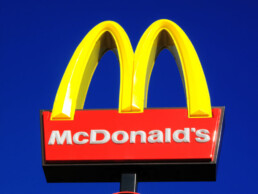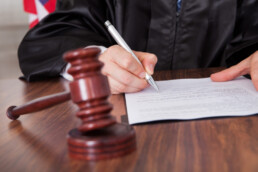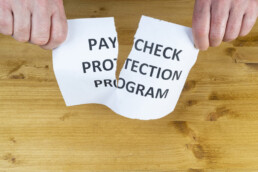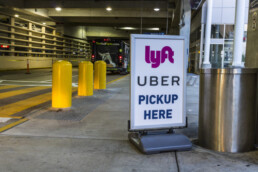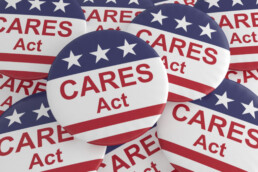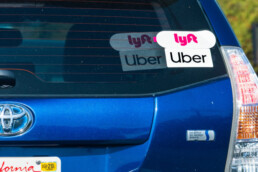Update on COVID-19 Related Legal Issues
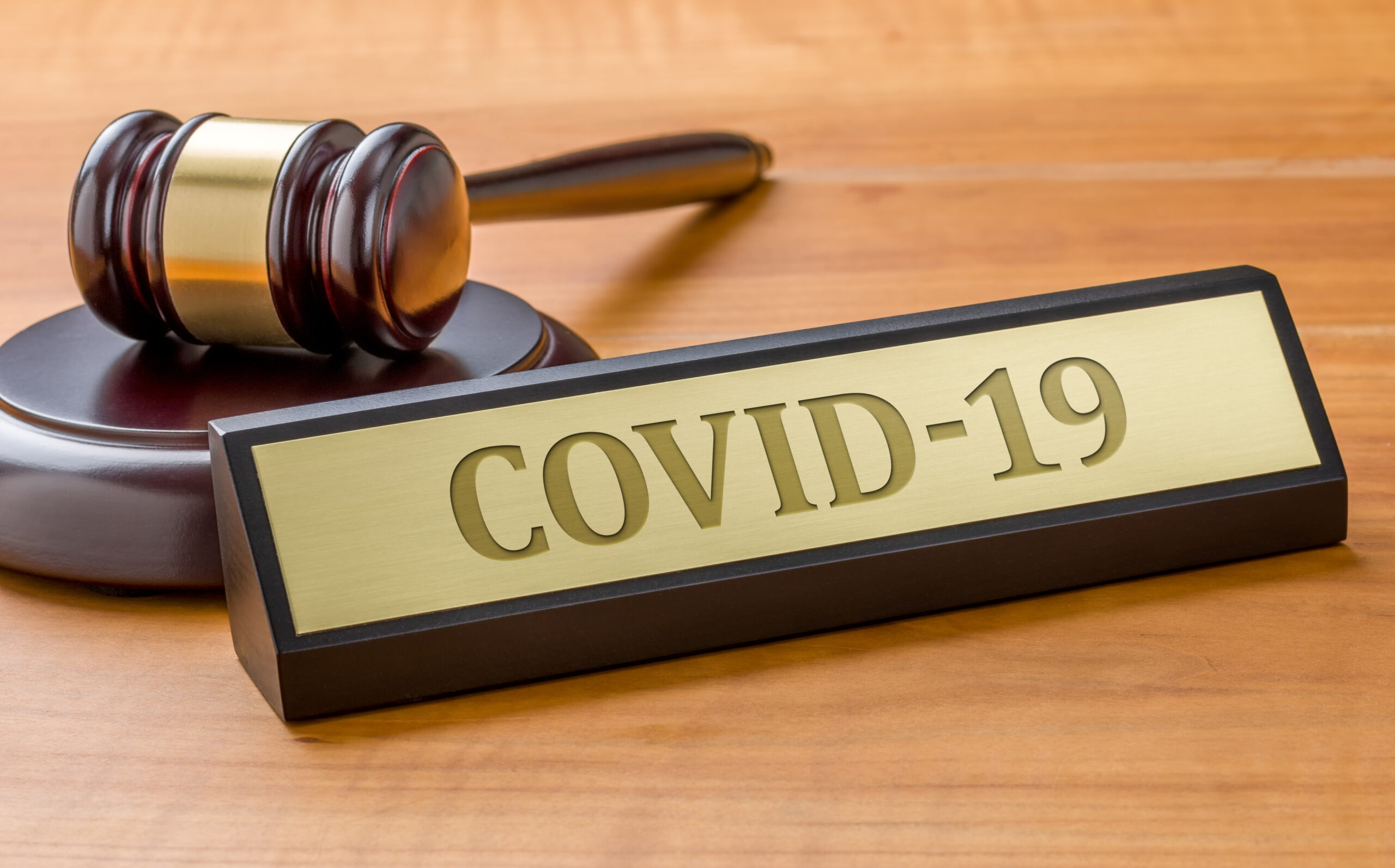
The scope of COVID-19 related lawsuits continues to expand as workers across the country are filing lawsuits seeking protection and damages from unfair labor practices. Moreover, there is a sense that more cases will be filed as more employees are impacted by the pandemic and businesses close, sometimes with little or no notice to soon-to-be unemployed workers.
Congress enacts the Families First Coronavirus Response Act
In March 2020, when Congress realized that a shut-down was imminent, Congress passed the Families First Coronavirus Response Act (FFCRA) which requires certain employers to offer employees paid sick leave or expanded family and medical leave for COVID-19 related reasons. Employees must have been employed for at least 30 days to benefit from FFCRA.
In general, the FFCRA provides for two weeks (up to 80 hours) of paid sick leave with regular pay if the employee is unable to work due to quarantine, or experiencing COVID-19 symptoms. Also, under the FFCRA, if an employee is unable to work due to the need to provide care for another individual under quarantine, or if their child’s school or child care provider closes due to COVID-19, the employee is allowed two weeks (up to 80 hours) of paid sick leave at two-thirds regular pay.
When an employee is unable to work in order to provide child care due to schools or child care being closed, employees are eligible for an additional 10 weeks of paid expanded family and medical leave at two-thirds regular pay.
Shortly after the FFCRA was enacted, a federal lawsuit was filed by an Eastern Airlines executive alleging she was fired after she requested time off under the FFCRA. According to the plaintiff, a single mother, she requested two hours of paid time off each day in order to care for her son, whose school was closed due to the pandemic. On the surface, it appears that the FFCRA was enacted to provide assistance to working parents such as the plaintiff in the midst of the pandemic. In this case, however, Eastern Airlines contends that the former employee was terminated on March 27, 2020, prior to the FFCRA taking effect on April 1, 2020.
COVID-19 and the ADA
Since 1990, the Americans with Disabilities Act (ADA) has provided significant protection to persons with disabilities in the workplace as well as society in general. One key aspect of the ADA is the requirement that employers provide reasonable accommodations to qualified employees with disabilities unless the accommodation would result in undue hardship to the employer. This requirement is quite broad and, for example, protects potential employees during the hiring and training process.
What constitutes a reasonable accommodation depends on the nature of the employee’s disability, the necessary duties of the job, the physical workplace and hardship (if any) to the employer. As a result of COVID-19, however, courts have been asked to consider how COVID-19 impacts established law and perhaps the need to re-interpret the meaning of reasonable accommodation under the ADA.
In June 2020, an engineer filed a lawsuit against his employer alleging discrimination in violation of the Massachusetts state ADA. In March, the employee was allowed to work from home in light of a state “stay at home” order. In April, his employer requested that he return to the office for work, but the employee requested he be allowed to continue to work remotely. The employee, who has high blood pressure and cares for his elderly mother, argues that he is at high risk of serious illness if he contracts COVID-19. He also fears transmitting the disease to his elderly mother who suffers from multiple medical conditions that place her at high risk. When his request for a reasonable accommodation, specifically to work remotely, was denied, he refused to return to the office, and was terminated.
Prior to the pandemic, courts did not consider a request to work remotely to be a reasonable accommodation. However, with increased health risks due to COVID-19, courts will be asked to re-consider whether a request to work remotely due to a heightened health risk of contracting or spreading the virus is a reasonable accommodation under the ADA.
More broadly, attorneys are using novel legal arguments in lawsuits based on the unique circumstances due to COVID-19 and the need to protect employees when current labor laws may be insufficient or simply never considered the challenges posed by the pandemic.
Lawsuits Filed after Employees Die From COVID-19
Sadly, some employees have died from COVID-19, and their families have filed lawsuits claiming that the workplace was not safe and employers failed to protect employees from the deadly virus. The key issue is whether employers followed federal and state safety guidelines, and if the employer failed to ensure proper protocols at work, they may be held liable for the death of an employee who contracted COVID-19 as a result of an unsafe workplace. Employers, however, claim that it is very difficult to prove how or where someone contracts the disease.
In one case, the family of a Safeway employee allege that the work environment was not safe because sick employees were still coming to work. Moreover, according to the lawsuit, on March 20, a memo was posted that stated, “If you are healthy, a mask will not protect you from the respiratory drops an infected person coughs out. Open areas of the mask can let those drops in.” The family filed a lawsuit after the employee tested positive for COVID-19 on April 4 and died eight days later. According to the family, Safeway failed to follow guidelines of the Occupational Safety and Health Administration (OSHA) issued on March 9 that required sick employees to be isolated.
Similar lawsuits have been filed against Walmart. In one case against a Walmart in Illinois, an employee was allegedly told to continue to work despite having symptoms, and was eventually sent home two days later when his symptoms worsened. He died two days later. Another Walmart employee in Dallas has filed a lawsuit that alleges she contracted COVID-19 because Walmart failed to provide personal protection equipment (PPE) and failed to follow health guidelines issued by health agencies including the Centers for Disease Control (CDC) and OSHA. As a result, she claims she contracted COVID-19 from the unsafe work environment at Walmart.
FREE CONSULTATION
Srourian Law Firm, with locations in Los Angeles, Westwood, Woodland Hills, and Orange County is experienced in all aspects of employment law including COVID-19 related health and safety violations in the workplace, and have aggressively represented employees in Los Angeles, Hollywood, Santa Monica, Orange, Irvine, Anaheim, Santa Ana, Newport Beach, Costa Mesa, Fullerton, Tustin, Mission Viejo, San Clemente, Garden Grove, Laguna Niguel, Brea, Fountain Valley, Aliso Viejo, Yorba Linda, Westminster, Laguna Hills, Cypress, and La Habra.
If you or someone you know suffered employment violations due to COVID-19 related health and safety violations, you may have certain employee rights under state and federal law, and may be entitled to compensation as a part of a class action lawsuit. Please contact us to speak with one of our lawyers for a free consultation.
Know the Law. Know your Rights.

Workers are generally protected from unfair labor practices by both federal and state laws. California workers, however, benefit from protections guaranteed under some of the country’s strongest labor laws. However, workers must know their rights in order to challenge illegal acts by employers.
What is the WARN Act?
The “WARN Act” or Worker Adjustment and Retraining Notification Act is a federal law that protects workers by requiring employers to give adequate notice to employees before a mass layoff or closing of a work site. Most states have “mini WARN Acts” which provide similar protections under state law.
The purpose of the WARN Act is to provide employees with sufficient notice of an impending job loss so that they can secure other employment or seek training to pursue a different job. Under the WARN Act, workers are entitled to 60-day notice prior to a mass layoff or closing with some exceptions.
Who is protected under the WARN Act?
In general, the WARN Act protects employees of companies with over 100 active full-time employees including private and public companies as well as non-profit organizations. The Act protects both salaried and hourly employees, but employees must be employed for at least six of the previous 12 months, and must work more than 20 hours a week.
When must an employer give a 60-day notice?
According to the WARN Act, employers must give a 60-day notice in advance of a mass layoff or closing of a work site. The layoff must also be expected to last more than six months. In other words, a temporary layoff or short furlough would not necessarily require a warning under the WARN Act. However, the WARN Act is triggered when any of the following is expected to occur:
• a reduction of at least 33 percent and of at least 50 employees during any 30-day period
• at least 500 full-time employees will be laid off
• closing of a work site will reduce employment by at least 50 employees.
The WARN Act also requires notice be given prior to the “sale of part or all of an employer’s business,” but courts have wrestled with whether this must also result in the termination of employees, and what constitutes a “sale.”
As with many legal issues, you should discuss your situation with an experienced labor attorney to determine whether your rights have been violated.
What happens if an employer fails to comply with the WARN Act?
The federal penalties for violating the WARN Act can be considerable and include paying employees back pay and benefits during the period of violation. In some circumstances, a business is also required to give advance notice to local government officials before the closing of a work site, and failure to provide notice can result in civil penalties.
How has COVID-19 affected the WARN Act?
Needless to say, COVID-19 has resulted in a significant number of layoffs and closures. When the pandemic caused many businesses to shut down in March 2020, the shutdown was largely expected to be temporary. However, as the shutdown continued, employers who failed to provide notice of a mass layoff or closure may argue that the extended layoff (beyond six months) was reasonably unforeseeable, and therefore no WARN notice was required. Under the WARN Act, there are exceptions to the notice requirement. Specifically, the exceptions include “unforeseeable business circumstances” that cause a layoff or business closure.
Whether a WARN Act violation has occurred during the pandemic is often unclear. Each case will depend on the specific facts, so it is important to consult with an experienced labor law attorney to assess your specific case.
For example, a lawsuit has been filed in Florida federal court against Enterprise Rent-a-Car alleging a violation of the WARN Act when an employee was laid off with no notice last April. The plaintiff argues that the reduction in work force was not “unforeseeable” because the company furloughed employees in mid-March when the pandemic initially forced many businesses to shut down.
Does the CA Warn Act provide more protection than the federal act?
Yes. California labor laws generally provide stronger protection to workers than federal law, and the CA Warn Act is no exception. For the most part, the state act is similar to the federal act except the CA Warn Act covers a broader range of employees. In other words, under the CA Warn Act, more workers are entitled to advance notice under the act.
The most significant difference however is the CA Warn Act does not make an exception for “unforeseeable circumstances.” In other words, unlike federal law, businesses may not argue that layoffs or closures due to COVID-19 were due to unforeseeable circumstances, and therefore, advance notice was not required.
Other important differences provide significantly more protection to workers during the pandemic. Unlike federal law, the CA WARN Act applies to temporary job loss regardless of the duration. California law, however, also has exceptions that excuse a business from giving notice. Specifically, the CA WARN Act has exceptions for layoffs due to “physical calamity” or “faltering business.” It is unclear, however, how the courts will define the exceptions, particularly in light of an executive order signed by Governor Gavin Newsom allows for a more flexible notice requirement if certain circumstances are met. This executive order is similar to a federal provision that allows some employers to give notice when “practical” when certain conditions are met and 60-day notice was not given.
FREE CONSULTATION
Srourian Law Firm, with locations in Los Angeles, Westwood, Woodland Hills, and Orange County is experienced in all aspects of employment law including WARN Act violations, and have aggressively represented employees in Los Angeles, Hollywood, Santa Monica, Orange, Irvine, Anaheim, Santa Ana, Newport Beach, Costa Mesa, Fullerton, Tustin, Mission Viejo, San Clemente, Garden Grove, Laguna Niguel, Brea, Fountain Valley, Aliso Viejo, Yorba Linda, Westminster, Laguna Hills, Cypress, and La Habra.
If you or someone you know suffered employment violations due to a WARN Act violation, you may have certain employee rights under state and federal law, and may be entitled to compensation as a part of a class action lawsuit. Please contact us to speak with one of our lawyers for a free consultation.
Worker Sue Department of Labor For COVID-19 Protection
The Occupational Safety and Health Act (OSHA) protects employers from workplace hazards. The scope of protection offered by OSHA is broad and ensures not only a safe work environment free from physical hazards, but also requires employers to provide necessary safety equipment and provides specific guidelines that employers must follow. Since COVID-19, workers have been rightfully concerned with safety, particularly when employers do not provide adequate personal protection equipment (PPE) or modify the workplace to allow for social distancing as recommended by health agencies including the Centers for Disease Control (CDC).
Unfortunately, there is growing criticism that OSHA has been slow to respond and has failed to protect the thousands of workers that have filed safety concerns with the agency. As a result, workers have been forced to work in unsafe conditions as they wait for OSHA to respond to safety complaints which has always been slow, but has come to a virtual standstill due to the increased number of complaints filed in light of increased safety concerns due to COVID-19. Also, since OSHA does not allow workers the right to sue employers directly for alleged safety violations, attorneys have found novel ways to advocate for employees who are concerned with their safety at work and must be protected immediately.
Some workers have filed novel lawsuits against employers under a public nuisance theory. Currently, lawsuits are pending against McDonald’s and Amazon alleging that the companies’ failure to adopt COVID-19 related safety measures has created a risk of public harm because of the increased risk of spreading the virus if workers contract the disease due to workplace safety violations. Therefore, workers are seeking the court’s assistance to order compliance with safety guidelines to protect the health and safety of employees as well as the public. Already, courts have ordered McDonald’s to increase safety measures, and Amazon no longer penalizes employees for taking time to wash hands as recommended by the CDC.
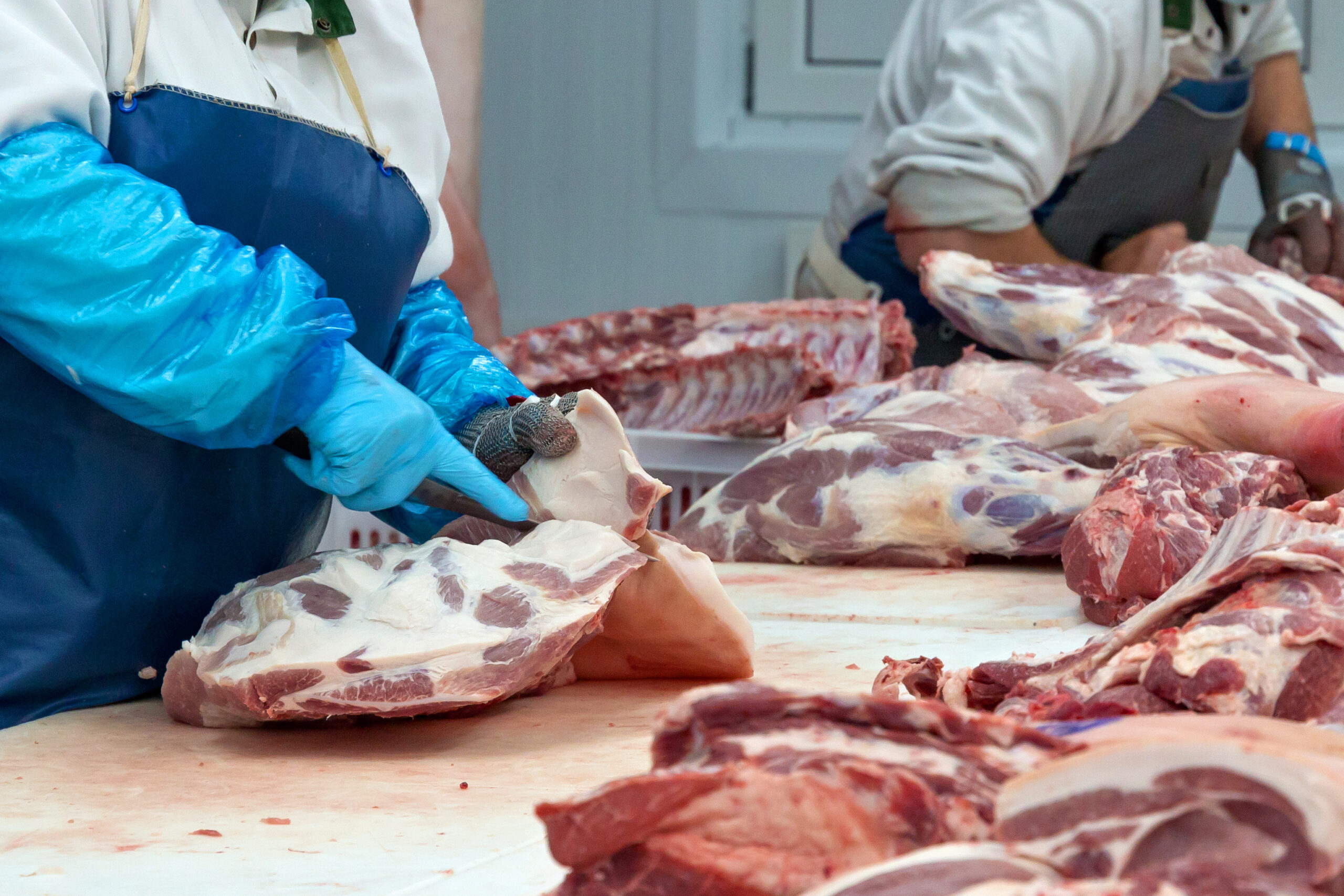
Another way that workers are able to bring their allegations to court is a little-known provision of OSHA that allows workers to seek a court order to compel OSHA to act when the Department of Labor (which enforces OSHA) “arbitrarily or capriciously fails to seek relief.” In other words, workers can ask a court to order the agency to take action against an employer to ensure the workplace is safe in the midst of the pandemic.
In a lawsuit filed in July by meatpackers at a Maid-Rite Specialty Foods factory in Pennsylvania, the workers are asking the court to order the Department of Labor to issue an OSHA citation because the workplace does not allow for appropriate social distancing and masks have not been provided. In this case, OSHA refused to investigate, and instead concluded that there was no “imminent danger” to workers despite the fact that the meatpacking industry has been the source of several COVID-19 related outbreaks across the country.
Specifically, workers allege several safety concerns including Maid-Rite has not modified the production line to allow for social distancing; fails to provide cloth mask; does not allow for enough time for hand washing; and has policies that encourage sick employees to work. By suing the Department of Labor, the employees are challenging the agency’s decision not to investigate and asking the court to compel the agency to protect the health and safety of employees by issuing an OSHA citation for the on-going safety violations. The case is currently pending in the U.S. District Court for the Middle District of Pennsylvania and will certainly have a significant impact on COVID-19 related litigation across the country if Judge Malachy Mannion agrees with the workers and compels the Department of Labor to issue OSHA citations for safety violations.
FREE CONSULTATION
Srourian Law Firm, with locations in Los Angeles, Westwood, Woodland Hills, and Orange County is experienced in all aspects of employment law including health and safety violations in the workplace, and have aggressively represented employees in Los Angeles, Hollywood, Santa Monica, Orange, Irvine, Anaheim, Santa Ana, Newport Beach, Costa Mesa, Fullerton, Tustin, Mission Viejo, San Clemente, Garden Grove, Laguna Niguel, Brea, Fountain Valley, Aliso Viejo, Yorba Linda, Westminster, Laguna Hills, Cypress, and La Habra.
If you or someone you know suffered employment violations due to health and safety violations, you may have certain employee rights under state and federal law, and may be entitled to compensation as a part of a class action lawsuit. Please contact us to speak with one of our lawyers for a free consultation.
Workers File Lawsuits to Protect the Public from COVID-19
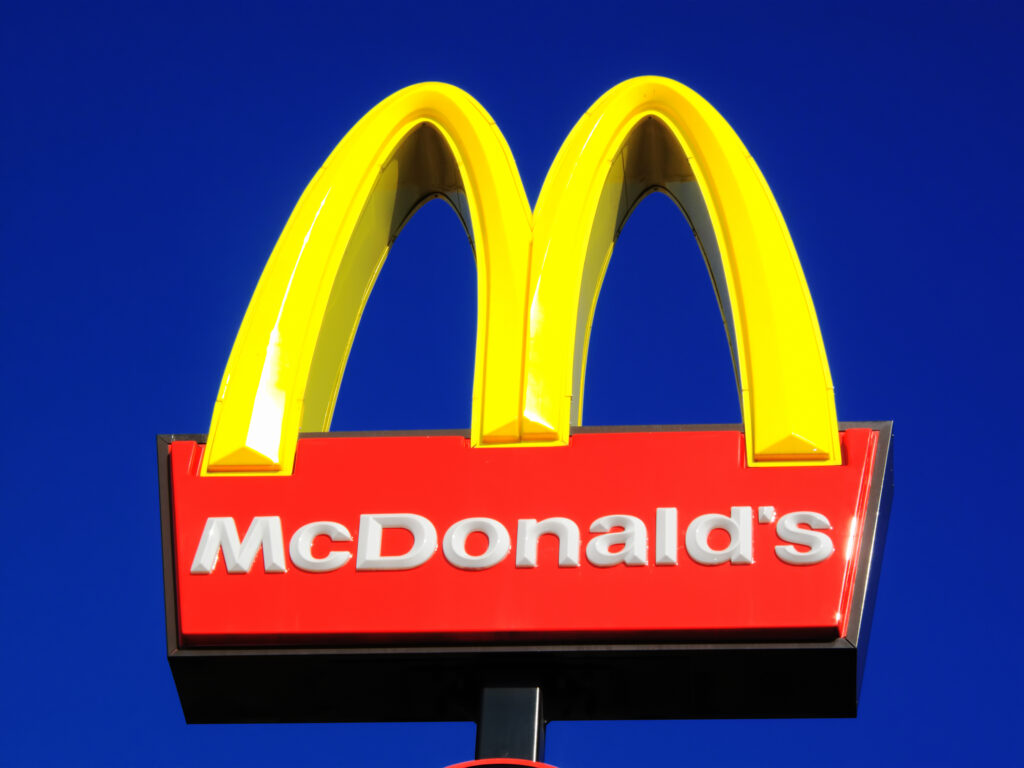
As the country continues to battle the pandemic, workers across the country continue to voice concerns for their safety and many have filed lawsuits in order to force employees to provide adequate protections in the workplace. While workers are generally protected from hazards in the workplace by the Occupational Safety and Health Act (OSHA), the process can be slow because complaints to OSHA must be investigated and violations must be found before the agency can force a business to act or face penalties. Moreover, OSHA does not allow workers to sue employers.
In order to ensure their health and safety during the pandemic, some employees have taken a novel approach by filing lawsuits under a public nuisance theory. Under this theory, workers allege employers are creating a public harm by failing to protect employees from contracting COVID-19, and therefore can seek injunctions which would force employers to implement stricter safety precautions to reduce the spread of COVID-19 and therefore ensure public safety.
Obviously, health and safety concerns must be addressed quickly so workers can continue to work in safe environments and reduce the risk of contracting COVID-19. Employers must protect their employees from all hazards in the workplace, and if they fail to ensure proper procedures, workers must seek quick remedies not only for their own health, but for the health and safety of their families and the public.
Employees of McDonald’s Allege a Public Safety Risk
Workers in Chicago allege several local McDonald’s restaurants have failed to implement appropriate safeguards. By placing workers at risk of contracting COVID-19, the workers argue that the employers therefore pose a risk to public safety. Specifically, employees allege they lack sufficient personal protection equipment (PPE) including masks and gloves; reported crowded work spaces that does not allow for proper social distancing; and failed to notify employees when co-workers tested positive for the virus. Five employees of four Chicago area McDonald’s restaurants filed a lawsuit in May which led to a court issuing an injunction and ordering McDonald’s to implement stricter safety protocols and training. While the judge declined to find McDonald’s acted negligently, Judge Eve Reilly held that the four restaurants identified in the lawsuit failed to ensure appropriate safety precaution to protect employees and the public from COVID-19 and therefore “endangering public health.”
Similarly, a judge in Alameda County granted a temporary court order requiring a McDonald’s franchisee in Oakland, CA to increase protective measures after employees filed a lawsuit alleging sick employees were required to work despite having symptoms of COVID-19. Moreover, employees allege that they were not provided masks and were forced to make masks out of coffee filters. The employees went on strike in May, and filed a lawsuit in June. A judge quickly ordered the restaurant to implement protective measures that included social distancing, sufficient PPE and employee temperature checks.
McDonald’s operates approximately 14,000 restaurants in the United States, and employees should consult an experienced labor law attorney if they are being placed at risk due to inadequate safety protocols at work.
Amazon Workers Claim Inadequate Contact Tracing Harms the Public
A federal lawsuit filed in New York by employees of Amazon allege the online retailer failed to implement appropriate safety measures to protect workers and the public from contracting COVID-19. Specifically, employees of an Amazon warehouse in Staten Island, NY claim that Amazon did not provide adequate PPE, penalized workers for time spent washing hands, and failed to follow proper contract tracing to stop the spread of the virus. For example, one employee claims in the lawsuit filed in June that despite being in close contact with a supervisor that contracted COVID-19, the employee was required to report to work the next day. This was inconsistent with safety guidelines issued by health agencies including the Centers for Disease Control (CDC) which would require isolation, and creates a risk of spreading the virus to the employee and the public.
In July, the employees withdrew a request for a preliminary injunction after Amazon assured employees that they would not be penalized for time needed to wash their hands or take other preventative safety measures in the workplace. In other words, productivity would not be reduced when employees took time to wash their hands pursuant to CDC guidelines. The other claims remain in dispute including whether Amazon has proper contact tracing procedures in place and whether the company’s paid leave policies was complaint to state law.
With the upcoming holidays, Amazon is known to hire as many as 200,000 seasonal employees to meet the increase in sales. This holiday season will be the first since the pandemic started, so workers should understand that they have rights and employers must ensure their safety at work. Moreover, if a worker requests that proper safety guidelines required by health agencies such as the CDC be followed at work or files a complaint, the employer may not retaliate against the employee. If you feel unsafe at work, speak to an experienced labor law attorney to protect your rights and ensure your safety, as well as the safety of the public.
FREE CONSULTATION
Srourian Law Firm, with locations in Los Angeles, Westwood, Woodland Hills, and Orange County is experienced in all aspects of employment law including health and safety violations in the workplace, and have aggressively represented employees in Los Angeles, Hollywood, Santa Monica, Orange, Irvine, Anaheim, Santa Ana, Newport Beach, Costa Mesa, Fullerton, Tustin, Mission Viejo, San Clemente, Garden Grove, Laguna Niguel, Brea, Fountain Valley, Aliso Viejo, Yorba Linda, Westminster, Laguna Hills, Cypress, and La Habra.
If you or someone you know suffered employment violations due to health and safety violations, you may have certain employee rights under state and federal law, and may be entitled to compensation as a part of the class action lawsuit. Please contact us to speak with one of our lawyers for a free consultation.
Court Orders Uber and Lyft to Reclassify Drivers as Employees

In a recent court decision, a California judge has ordered Uber and Lyft to classify their drivers as employees in a tremendous victory for the estimated 4.6 million ride-hailing drivers in California. The August 10, 2020 decision is part of the on-going lawsuit alleging the companies misclassified drivers as independent contractors in order to avoid providing benefits including overtime wages, health insurance and paid leave. The ride-hailing companies are expected to appeal the ruling, which would fundamentally alter the business models of ride-hailing companies in California, and perhaps have an impact across the country as similar lawsuits are being considered.
What is the lawsuit about?
The core issue in the lawsuit against Uber and Lyft is whether drivers have been misclassified as “independent contractors” instead of employees. Uber and Lyft argue that drivers are not employees, and therefore do not have to provide drivers with the benefits required under state and federal labor law. The issue has broader implications as well for similar employees, known as “gig workers.”
The state of California has some of the country’s strongest laws protecting employees, and have been aggressively challenging the classification of drivers as independent contractors. Significantly, on January 1, 2020, California Assembly Bill No. 5 (A.B. 5) went in to effect and expanded the definition of “employee.” The new law essentially requires Uber and Lyft to reclassify drivers as employees and provide drivers with benefits including minimum wages, workers comp, unemployment, overtime wages, paid rest periods, paid sick and family leave and health insurance. Employers would also have to reimburse drivers for use of personal vehicles for work.
According to a 2018 ruling by the California Supreme Court, there is a three-prong test to determine whether a worker is an employee or an independent contractor. The test presumes a worker is an employee unless the employer can prove the following:
- The worker is free to perform services without the control or direction of the company;
- the worker performs work tasks outside the employer’s usual course of business; and
- the worker engages in work that is customarily established to be an independent trade, business or occupation.
As a result of A.B. 5, lawsuits were filed alleging Uber and Lyft violated the law by continuing to withhold benefits from drivers by misclassifying them. Under state law, employers must convince a court that workers are independent contractors based on the test established in 2018. On August 10, 2020, Judge Ethan Schulman granted a request by the attorney general for a preliminary injunction and ordered Uber and Lyft to comply with A.B. 5 and reclassify drivers as employee. According to the order, it’s “simple.” Based on the test established by case law, the court concluded that “drivers do not perform work that is ‘outside the usual course’ of their business.” Therefore, because the companies could not satisfy the test to show drivers are independent contractors, the court ordered Uber and Lyft to reclassify drivers as employees within 10 days of the order.
What’s next?
Unfortunately, despite the court’s ruling, it is not clear if and when drivers will be reclassified as employees. Not surprisingly, Uber and Lyft have indicated they plan to file appeals, but the court order is scheduled to be effective August 20, 2020, which means the drivers must be classified as employees by that date. Unless a stay is granted, which would delay the court’s order from going in to effect, both Uber and Lyft have threatened to stop operating in California stating that the new classification would not be financially feasible. According to Uber CEO Dara Khosrowshahi, “If the court doesn’t reconsider, then in California, it’s hard to believe we’ll be able to switch our model to full-time employment quickly.”
California Attorney General Xavier Becerra, however, is not concerned about threats to stop operations in California because “Any business model that relies on short-changing workers in order to make it probably shouldn't be anywhere, whether California or otherwise,"
Upcoming Ballot Measure Challenging A.B. 5
The ride-hailing companies are also bringing the case directly to California voters this November in a ballot measure seeking to classify ride-haling drivers as independent contractors. The ballot measure also requires the companies to adopt certain labor policies, but do not provide as many benefits or protections that employees in California are guaranteed by law.
The measure, Proposition 22, is already the subject of vigorous campaigning by both sides. On the ballot, Proposition 22 is titled “Exempts app-based transportation and delivery companies from providing employee benefits to certain driver.” If passed, drivers will be lawfully categorized as independent contractors and will not be entitled to employee benefits that are guaranteed in California. Instead, Uber and Lyft will be required to provide “alternative benefits,” but not at the level that California and federal law currently requires.
FREE CONSULTATION
Srourian Law Firm, with locations in Los Angeles, Westwood, Woodland Hills, and Orange County is experienced in all aspects of employment law including misclassifying workers, and have aggressively represented employees in Los Angeles, Hollywood, Santa Monica, Orange, Irvine, Anaheim, Santa Ana, Newport Beach, Costa Mesa, Fullerton, Tustin, Mission Viejo, San Clemente, Garden Grove, Laguna Niguel, Brea, Fountain Valley, Aliso Viejo, Yorba Linda, Westminster, Laguna Hills, Cypress, and La Habra.
If you or someone you know suffered employment violations due to misclassification by ride-hailing companies, you may have certain employee rights under state and federal law, and may be entitled to compensation as a part of the class action lawsuit. Please contact us to speak with one of our lawyers for a free consultation.
FAQs on PPP Fraud
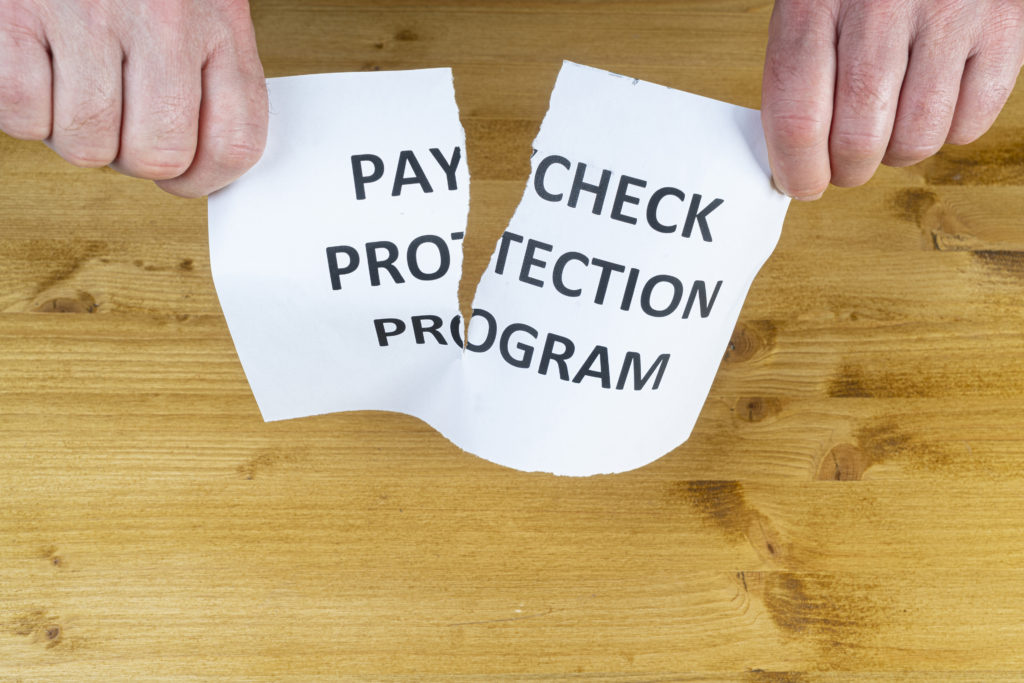
Many businesses have benefited from PPP loans during closures due to COVID-19. PPP funds, however, are supposed to benefit employees by providing financial assistance to businesses to maintain payroll, employee benefits and other business expenses. If you are aware of any PPP fraud by your employer, you have an obligation to report the fraud. Moreover, you are protected from any retaliation for reporting any violations.
Q: What is PPP fraud?
A: PPP (Paycheck Protection Program) fraud includes any misuse of funds from the Small Business Administration (SBA) in response to COVID-19. In an effort to provide financial assistance to businesses during the pandemic. Any business that received PPP money, must use the money for specific business expenses such as payroll, employee benefits, rent, interest on mortgages, and utilities. The intent of the PPP was to ensure that businesses could continue to pay employees and cover necessary businesses expenses during mandatory closures.
Unfortunately, there is a growing concern that businesses have been violating the requirements of PPP. This fraudulent behavior has resulted in the money not being used to pay employees as intended. Examples of PPP fraud include falsifying information on PPP applications, providing inaccurate data regarding employees, and misdirecting PPP funds away from payroll.
Q: What happens if I learn my company committed PPP fraud?
A; If you learn that your company has committed PPP fraud, you must report the fraud. However, there are steps you can take to protect your rights. First, you should review any paperwork you signed as a condition of employment. This will include any employment contract, documents signed during orientation and training, as well as any employee handbooks. These documents often include a company policy that employees will act honestly and report fraud. In other words, you could be violating a company policy by not reporting the fraud. Second, you should consult with an experienced labor law attorney who can not only advise you of the legal issues, but more importantly, will protect your rights.
A: Can my company fire me for reporting PPP fraud?
A: No. If you report PPP fraud, you are protected by federal and state laws as a whistleblower. Any punitive action taken by an employer against an employee for reporting PPP fraud (or any violation of a law or regulation) is specifically protected under laws against whistleblower retaliation. In addition to federal protection, California has very strong labor laws that protect whistleblowers. Specifically, California Labor Code section 1102,5 (in part) states:
An employer, or any person acting on behalf of the employer, shall not retaliate against an employee for disclosing information, or because the employer believes that the employee disclosed or may disclose information.
The broad protection under California law not only protects whistleblowers from retaliation, but also protects an employee who are believed to be a whistleblower by the company. Other forms of retaliation that are prohibited by law include threats, demotions, reduced hours or pay, blacklisting or denying a promotion that is merited.
Q: Can I sue my company if they retaliate against me for reporting PPP fraud?
A: Yes. If you report PPP fraud by your company, and are the victim of retaliation because of the report, you have a right to sue under federal and state law. Moreover, the company can also face significant civil penalties. An experienced labor law attorney can review your case and help you decide what course of action is best. More importantly, consulting with an attorney will protect your rights as an employee and possible whistleblower.
FREE CONSULTATION
Srourian Law Firm, with locations in Los Angeles, Westwood, Woodland Hills, and Orange County is experienced in all aspects of employment law including PPP fraud and whistleblower retaliation, and have aggressively represented employees in Los Angeles, Hollywood, Santa Monica, Orange, Irvine, Anaheim, Santa Ana, Newport Beach, Costa Mesa, Fullerton, Tustin, Mission Viejo, San Clemente, Garden Grove, Laguna Niguel, Brea, Fountain Valley, Aliso Viejo, Yorba Linda, Westminster, Laguna Hills, Cypress, and La Habra.
If you or someone you know suffered employment violations due to PPP fraud or whistleblower retaliation, you may have certain employee rights under state and federal law, and may be entitled to compensation as a part of the class action lawsuit. Please contact us to speak with one of our lawyers for a free consultation.
Big Win in PA Court Case May Have Big Impact
A recent Pennsylvania Supreme Court decision may be a big win for all drivers who work for ride-hailing companies like Uber and Lyft. On July 27, 2020, the highest court in Pennsylvania held that a part-time Uber driver was not “self-employed,” The designation is significant because Uber has consistently argued in lawsuits across the country that drivers are independent contractors and self-employed, not employees.
By categorizing the estimated 2.6 million Uber drivers in the U.S. as being self-employed, Uber is not required to provide any federal or state benefits. In this case, however, the sole issue was whether his part-time work with Uber disqualified him from unemployment benefits because an applicant who engages in an independent business venture is not eligible for unemployment benefits. While the decision is not binding on other states, it could be a significant victory for all ride-hailing drivers as well as gig workers more broadly.
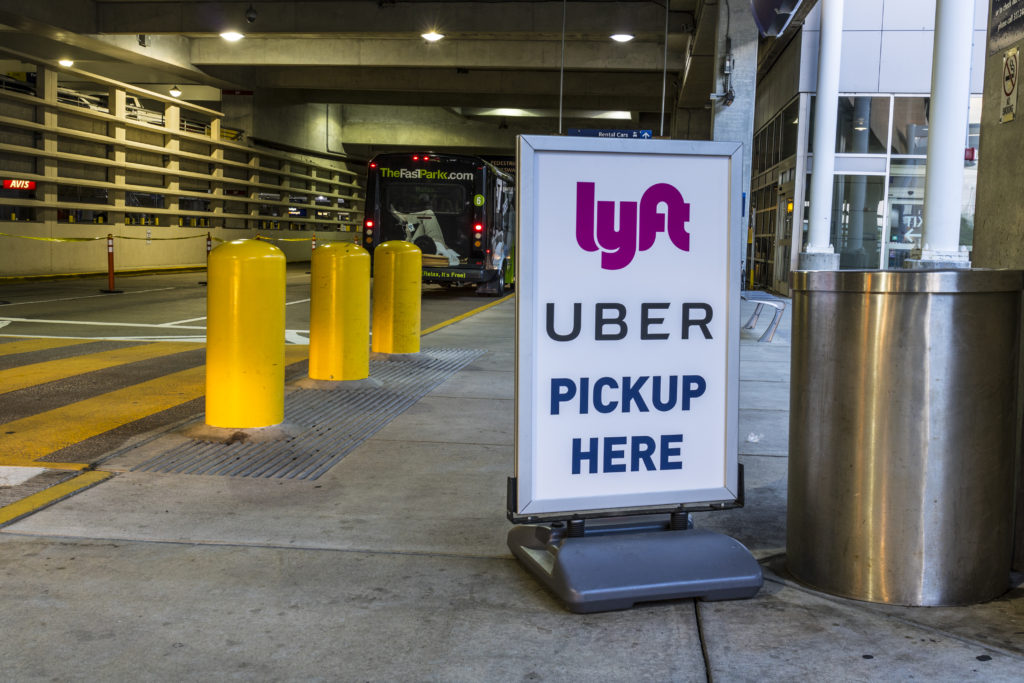
The case in Pennsylvania involves a laid-off behavioral specialist who started working for Uber part-time. The driver, however, was denied unemployment benefits because his part-time work with Uber was categorized as an “independent business venture.” The court, however, ruled that the driver was not self-employed because Uber had “significant control” over his work, and therefore eligible for unemployment benefits due to losing his full-time job as a behavioral specialist. The court acknowledged that drivers do have some autonomy such as setting work hours and rejecting rides, but overall, the court found that there were more significant aspects of the contract that Uber controlled. For example, Uber sets the rate for services, drivers cannot establish work relationships with passengers, and drivers cannot subcontract their work.
While the decision is good news for drivers, the court stopped short of saying the decision should be applied broadly because “individual decisions must be made in specific cases based upon the unique facts presented in each circumstance.” Similarly, the court did not hold that the driver was an “employee” of Uber, which is the question at the core of lawsuits across the country.
Currently, under federal and state laws, independent contractors are generally not eligible for certain employee benefits such as overtime pay, meal/rest breaks, and paid sick time. While that question remains unsettled, litigation is pending in California and around the world and millions of drivers wait anxiously for a favorable decision that would provide them with the benefits and protection they deserve under federal and state law.
FREE CONSULTATION
Srourian Law Firm, with locations in Los Angeles, Westwood, Woodland Hills, and Orange County is experienced in all aspects of employment law including the representation of ride-hailing drivers and have aggressively represented employees in Los Angeles, Hollywood, Santa Monica, Orange, Irvine, Anaheim, Santa Ana, Newport Beach, Costa Mesa, Fullerton, Tustin, Mission Viejo, San Clemente, Garden Grove, Laguna Niguel, Brea, Fountain Valley, Aliso Viejo, Yorba Linda, Westminster, Laguna Hills, Cypress, and La Habra.
If you or someone you know suffered employment violations as a ride-hailing driver, you may have certain employee rights under state and federal law, and may be entitled to compensation as a part of the class action lawsuit. Please contact us to speak with one of our lawyers for a free consultation.
Federal Government Clarifies CARES Act Eligibility

As the country continues to struggle with the challenges due to COVID-19, labor laws have been adapting to the pandemic, and employees must be aware of their rights. One area that has been significantly impacted by COVID-19 is the laws regarding unemployment benefits. The federal and state laws that govern unemployment benefits have always been complicated, and are especially difficult to understand now with the Coronavirus Aid, Relief, and Economic Security Act (CARES) that was enacted in March 2020. CARES expanded weekly unemployment benefits by as much as $600 a week to eligible workers and have proven to be vital to many families during the pandemic. While there have been a myriad of issues and concerns regarding CARES, there is no denying that to many unemployed workers relied on the additional funds as the nation’s unemployment rate sky-rocketed. Moreover, many states were overwhelmed with the volume of applications, and benefits were delayed.
While it is uncertain whether the CARES Act will be extended, the federal government provided some clarification on July 22, 2020. For example, a worker may refuse to accept a job offer because the job is unsafe and continue to collect the additional financial benefits provided under CARES. The states, however, will determine what is considered to be safe work conditions, and if a state determines the job or work conditions are not “suitable,” then the worker may receive the expanded unemployment benefits under CARES. Most states already had suitable work place provisions in place prior to COVID-19, and the general criteria is whether the work unreasonably exposes the worker to unsuitable safety risks. Labor laws have always guaranteed a safe work environment, which is particularly important during a pandemic. Notably, a worker cannot refuse a job offer and seek expanded unemployment benefits due to a general fear of COVID-19.
According to the U.S. Department of Labor, the state may also determine that a job is unsuitable if a worker refuses the job due to virus-related reasons such as increased risk of COVID-19 due to an underlying medical condition. The state may also determine a job is unsuitable if a worker claims “good cause,” although the federal government has not specifically defined what is considered to be “good cause” which means that states must decide that issue. Fortunately, workers in California benefit from some of the country’s strongest state labor law protections, and this is one example of how an experienced labor law attorney will be able to argue your case by understanding state laws to protect your rights when federal law is not clear.
The federal government also clarified that some out-of-work employees are not eligible for CARES benefits depending on what caused the loss of the job. For example, if a worker is unemployed due to a reason not related to COVID-19, that worker is not eligible for expanded benefits even if jobs are not available due to COVID-19 related circumstances. The reason for this is because CARES was enacted to assist workers who faced unemployment specifically due to the pandemic, and is not broad enough to include workers who did not lose their jobs due to reasons unrelated to COVID-19. Fortunately, those workers may still be eligible for regular unemployment benefits.
Prior to COVID-19, workers who quit their jobs without “good cause” were generally not eligible for unemployment benefits. However, under the CARES Act, certain reasons related to COVID-19 would allow a worker to qualify for expanded unemployment benefits under CARES. For example, a worker who quits a job because of mandatory quarantine, or the need to provide care to a family member with COVID-19 could be considered “good cause” for the purposes of CARES benefits.
While the federal government continues to debate whether to extend benefits under the CARES Act or perhaps craft new legislation, the states may decide to adopt new policies regarding eligibility in the meantime. However, since unemployment benefits are a hybrid of federal and state law, the states must adhere to federal law and provide at least the minimum benefits afforded under federal laws. Also, as more states work towards re-opening and more businesses are hiring, states may become stricter in determining eligibility for unemployment benefits. As we have learned, during a pandemic, it is important to be informed and be ready to take full advantage of any benefits you are eligible for. Plan ahead and consult an experienced labor law attorney so you will have an advocate that will not only understand the quickly changing laws and benefits, but will be able to guide you and protect your rights during these uncertain times.
FREE CONSULTATION
Srourian Law Firm, with locations in Los Angeles, Westwood, Woodland Hills, and Orange County is experienced in all aspects of employment law including unemployment benefits and have aggressively represented employees in Los Angeles, Hollywood, Santa Monica, Orange, Irvine, Anaheim, Santa Ana, Newport Beach, Costa Mesa, Fullerton, Tustin, Mission Viejo, San Clemente, Garden Grove, Laguna Niguel, Brea, Fountain Valley, Aliso Viejo, Yorba Linda, Westminster, Laguna Hills, Cypress, and La Habra.
If you or someone you know suffered employment violations involving unemployment benefits, you may have certain employee rights under state and federal law, and may be entitled to compensation as a part of the class action lawsuit. Please contact us to speak with one of our lawyers for a free consultation.
Appeals Court Gives Delivery Drivers the Green Light to Trial
A recent decision by a federal appeals court is good news for delivery drivers seeking compensation for unpaid wages and unreimbursed expenses. In an important decision dated July 17, 2020, the First Circuit U.S. Court of Appeals held that Amazon delivery drivers are considered “transportation workers engaged in interstate commerce” even if they never physically cross state lines to complete deliveries.
The decision is important because this means that Amazon delivery drivers may proceed with a class action lawsuit without having to go through private arbitration. Defendant Amazon argued that plaintiffs may only resolve disputes through arbitration, and are prohibited from filing a law suit according to the Federal Arbitration Act (FAA). The appeals court, however, disagreed with Amazon’s argument that the FAA required arbitration in this case because the FAA does not require arbitration for “entire categories of workers in the transportation industry just because those workers might not have physically crossed state lines.”
Amazon unsuccessfully argued that “last-mile delivery workers” who do not always cross state lines when traveling the final legs of the delivery did not “engage in interstate commerce” and therefore must settle claims in arbitration, not court. The court’s decision, however, firmly includes these last-mile delivery drivers as engaging in work “within the flow of interstate commerce.” The key to the decision was whether or not the delivery drivers “engaged in” interstate commerce if they did not actually travel across state lines to deliver goods. According to the appeals court, the drivers were entitled to sue employers for claims of labor law violations and it was not important that they did not actually physically cross a state line in order to make the delivery. This reasoning is based on a 2001 U.S. Supreme Court decision that held employees were engaged in interstate commerce even when employees did not actually cross a state line as long as the intrastate portion of their work was part of an overall “interstate journey.” In other words, the court did not want to penalize the drivers for being assigned delivery routes by Amazon that did not require them to cross state lines, but nonetheless was part of interstate delivery of goods.

The class action suit against Amazon was originally filed in 2017 by drivers in Massachusetts who claimed Seattle-based Amazon misclassified delivery drivers as independent contractors. This misclassification allowed Amazon to refuse to provide drivers with vehicles or reimburse for expenses incurred by drivers such as insurance, gas, and mileage. Amazon argued that arbitration was the appropriate and only forum available to plaintiffs because of the FAA. Employers favor arbitration because arbitration usually favors employers, awards are binding and not subject to appeal, and arbitration is generally much less expensive than a trial. Moreover, if an employer loses at trial, often the award includes plaintiff's attorney's fees.
Additionally, Amazon unsuccessfully argued that Washington state law prohibited the class action lawsuit because the employees were bound by a class action waiver that was part of their employment contract. A class action waiver prohibits employees from filing a class action against employers, but the appeals court refused to apply Washington state law. Instead, the court relied on Massachusetts state law, which is considerably more favorable to employees. Under Massachusetts state law, the appeals court held that the class action waiver was “contrary to the commonwealth’s fundamental public policy” and invalid because it was not possible to enforce the arbitration provision independently from the rest of the relevant section of the contract dealing with dispute resolution.
This decision has significant impact on the pending litigation, as well as other class action lawsuits across the country where employees are misclassified by employers in order to violate labor laws and avoid paying certain wages or reimburse expenses, and will greatly assist employees who have had their rights violated by employers.
FREE CONSULTATION
Srourian Law Firm, with locations in Los Angeles, Westwood, Woodland Hills, and Orange County is experienced in all aspects of employment law including unpaid wages and unreimbursed expenses and have aggressively represented employees in Los Angeles, Hollywood, Santa Monica, Orange, Irvine, Anaheim, Santa Ana, Newport Beach, Costa Mesa, Fullerton, Tustin, Mission Viejo, San Clemente, Garden Grove, Laguna Niguel, Brea, Fountain Valley, Aliso Viejo, Yorba Linda, Westminster, Laguna Hills, Cypress, and La Habra.
If you or someone you know suffered employment violations as a delivery driver or employee including unpaid wages or unreimbursed expenses, you may have certain employee rights under state and federal law, and may be entitled to compensation as a part of the class action lawsuit. Please contact us to speak with one of our lawyers for a free consultation.
AG Seeks Injunction to Protect Uber/Lyft Drivers
A bold move by the California Attorney General could have a significant impact on the estimated 500,000 Uber and Lyft drivers in California. On June 24, 2020, Attorney General Xavier Becerra announced plans to file for a preliminary injunction to force the ride-hailing companies to classify drivers as employees rather than independent contractors.
According to the attorney general, “Mis-classifying your workers as ‘consultants’ or ‘independent contractors’ simply means you want your workers or taxpayers to foot the bill for obligations you have as an employer.” Specifically, by characterizing drivers as independent contractors, according to Becerra, the employers can avoid “paying a legal wage or overtime, providing sick leave, or providing unemployment insurance.”
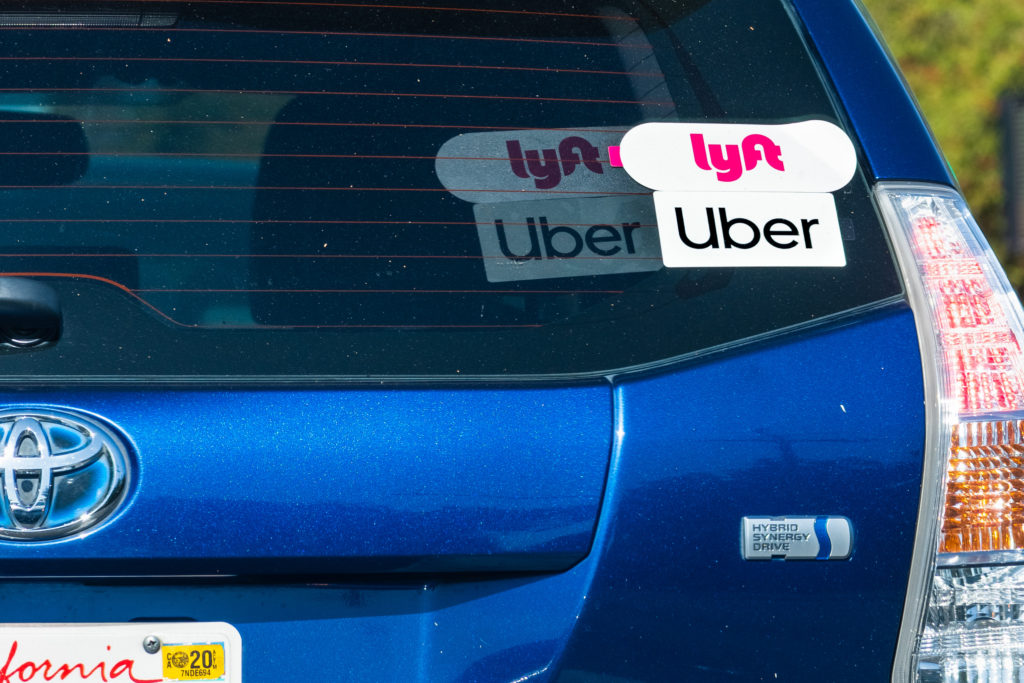
This issue is not new, and the attorney general and the city attorneys of Los Angeles, San Francisco and San Diego previously sued Uber and Lyft in May 2020, claiming that the companies mis-classified drivers in violation of the newly enacted state law A.B. 5, which made it more difficult to classify workers as independent contractors. Despite being controversial, A.B. 5 provides protection to many workers that were previously mis-classified as independent contractors by employers in order to limit workers’ rights to overtime pay or sick leave, unemployment benefits, workers compensation, and refuse reimbursement for driving expenses.
The test for independent contractors established by A.B. 5, which went in to effect on January 1, 2020, largely due to the CA Supreme Court ruling in Dynamex Operations West, Inc. v. Superior Court of Los Angeles which established a new test for independent contractor:
- The worker works outside the “usual business;” and
- The worker “customarily” does the same work for the alleged employer as part of an “independent business.”
Based on the new test, Attorney General Becerra argues that drivers for Uber and Lyft are “employees” under California state law, and therefore are entitled to rights afforded to all employees in California. If the injunction is granted, Uber and Lyft will be forced to re-classify drivers as employees immediately. Furthermore, a ruling against the ride-hailing companies in the on-going lawsuit filed in May would possibly result in restitution for unpaid wages owed to drivers, civil penalties, and perhaps permanently prohibit the companies from mis-classifying drivers as independent contractors in the future.
FREE CONSULTATION
Srourian Law Firm, with locations in Los Angeles, Westwood, Woodland Hills, and Orange County is experienced in all aspects of employment law violations by Uber or Lyft, and have aggressively represented employees in Los Angeles, Hollywood, Santa Monica, Orange, Irvine, Anaheim, Santa Ana, Newport Beach, Costa Mesa, Fullerton, Tustin, Mission Viejo, San Clemente, Garden Grove, Laguna Niguel, Brea, Fountain Valley, Aliso Viejo, Yorba Linda, Westminster, Laguna Hills, Cypress, and La Habra.
If you or someone you know suffered employment violations as a driver for Uber or Lyft, you may have certain employee rights under state and federal law, and may be entitled to compensation as a part of the class action lawsuit. Please contact us to speak with one of our lawyers for a free consultation.




